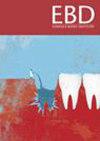Is depression influenced by oral health?
Q3 Dentistry
引用次数: 0
Abstract
A search of four databases (PubMed, EBSCOhost, Medline, and Google Scholar) identified studies for inclusion. Two reviewers independently selected articles for review. Studies published in English between January 2000 and June 2024 were selected. Studies that described the association of oral health and depression, and those with an oral health factor as the independent variable and depression as the dependent variable were eligible. Systematic reviews and case reports were excluded. Data was extracted from 31 eligible articles, which included both cross-sectional and prospective cohort studies, by two reviewers independently. The results of each study were narratively described; no meta-analysis was carried out due to heterogeneity between the studies. The authors reported that results were observed after controlling confounding factors. Each reviewer independently evaluated the studies’ methodological quality and validity using the Joanna Briggs Institute (JBI) tool for cross-sectional studies. There were mixed results regarding the impact of oral health on depression. Some studies reported significantly increased risk of depression with both tooth loss and oral pain, whilst others reported no association. Impaired oral function was consistently associated with symptoms of depression. The review concluded that oral health has a significant impact on depression and that there is a bi-directional relationship between the two, necessitating targeted interventions to improve oral health and thus positively impact mental health.口腔健康会影响抑郁症吗?
数据来源:检索四个数据库(PubMed, EBSCOhost, Medline和b谷歌Scholar)确定纳入的研究。研究选择:两名审稿人独立选择文章进行审查。2000年1月至2024年6月期间发表的英文研究被选中。描述口腔健康和抑郁之间关系的研究,以及那些以口腔健康因素为自变量、以抑郁为因变量的研究都是合格的。排除了系统评价和病例报告。数据提取和综合:数据从31篇符合条件的文章中提取,包括横断面研究和前瞻性队列研究,由两名评论者独立完成。每项研究的结果都有叙述性的描述;由于研究之间存在异质性,未进行meta分析。作者报告了在控制混杂因素后观察到的结果。每个审稿人使用乔安娜布里格斯研究所(JBI)的横断面研究工具独立评估研究的方法学质量和有效性。结果:口腔健康对抑郁症的影响有不同的结果。一些研究报告称,牙齿脱落和口腔疼痛会显著增加抑郁症的风险,而另一些研究则认为两者没有关联。口腔功能受损始终与抑郁症状相关。结论:口腔健康对抑郁症有显著影响,两者之间存在双向关系,需要有针对性的干预措施来改善口腔健康,从而对心理健康产生积极影响。
本文章由计算机程序翻译,如有差异,请以英文原文为准。
求助全文
约1分钟内获得全文
求助全文
来源期刊

Evidence-based dentistry
Dentistry-Dentistry (all)
CiteScore
2.50
自引率
0.00%
发文量
77
期刊介绍:
Evidence-Based Dentistry delivers the best available evidence on the latest developments in oral health. We evaluate the evidence and provide guidance concerning the value of the author''s conclusions. We keep dentistry up to date with new approaches, exploring a wide range of the latest developments through an accessible expert commentary. Original papers and relevant publications are condensed into digestible summaries, drawing attention to the current methods and findings. We are a central resource for the most cutting edge and relevant issues concerning the evidence-based approach in dentistry today. Evidence-Based Dentistry is published by Springer Nature on behalf of the British Dental Association.
 求助内容:
求助内容: 应助结果提醒方式:
应助结果提醒方式:


